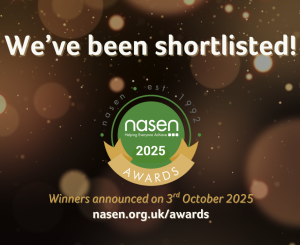The Importance of Positive Relationships in Child and Adolescent Development
Positive relationships play a pivotal role in the healthy development of children and young people. Fostering positive relationships during the early, formative years is crucial for the acquisition of social skills and emotional regulation, providing the nurturing environment necessary for these skills to flourish. Children and young people who experience supportive, loving, and stable relationships with parents, caregivers, educators, peers, and mentors tend to develop a strong sense of self-worth, empathy, and resilience. Such connections offer a safe space for them to explore their emotions, learn conflict resolution, and develop effective communication skills. In addition, positive relationships foster a sense of belonging and connection, which is essential for emotional wellbeing and the development of a strong moral compass. In essence, these connections serve as the building blocks for healthy emotional, social, and behavioural development during the crucial stages of childhood and young people.
The absence of positive relationships in child and adolescent development can have profound and lasting effects on a young person's wellbeing and development. These relationships, whether with peers, caregivers, or authority figures, can lead to emotional and psychological distress, impacting self-esteem and social skills.
Negative interactions may contribute to:
- behavioural problems
- increased risk of mental health issues
- and hinder the development of trust and healthy attachment patterns.
It's crucial for caregivers, educators, and society as a whole to provide support, guidance, and intervention when negative relationships are identified, in order to mitigate their detrimental impact and promote positive social and emotional development in children and adolescents.
Developing Social Skills: Communication, Empathy, and Conflict Resolution
Developing social skills encompassing effective communication, empathy, and conflict resolution is vital for building meaningful relationships and navigating the complexities of human interaction.
- Communication skills enable individuals to express their thoughts, feelings, and ideas clearly while also actively listening to others.
- Empathy, on the other hand, allows individuals to understand and share in the emotions and perspectives of others, fostering deeper connections and promoting understanding.
- Equally important is the ability to resolve conflicts peacefully and constructively, which involves finding common ground, compromising, and maintaining respect for differing viewpoints.
These skills are essential not only for building harmonious personal relationships but also for success in various aspects of life, including education, the workplace, and the wider community. As such, nurturing and honing these social skills is a lifelong process that contributes significantly to personal growth and the betterment of society as a whole.
An early adoption of a whole school nurturing approach, can positively impact pupils' learning, behaviour, attendance and wellbeing. The Boxall Profile® Online supports a whole school approach to assessing and addressing children and young people’s social, emotional and behavioural development and nurtureuk offer a range of training solutions, webinars, resources and publications to support this approach. Find out more at https://www.nurtureuk.org/.
Building Healthy Peer Relationships: Encouraging Collaboration and Cooperation
Building healthy peer relationships is a crucial aspect of social development, emphasising collaboration and cooperation. Encouraging these qualities among young individuals fosters an environment of trust, support, and mutual respect among peers.
- Collaboration involves working together toward common goals, pooling diverse talents and perspectives, and appreciating each other's strengths.
- Cooperation, on the other hand, focuses on resolving conflicts amicably, sharing resources, and empathetically addressing the needs and concerns of others.
These skills not only promote positive interactions but also help young people develop the ability to navigate the challenges and complexities of social dynamics. By nurturing a culture of collaboration and cooperation, we empower the next generation to create harmonious peer relationships, build strong communities, and contribute to a more inclusive and empathetic society.
Poor peer relationships can often stifle collaboration and cooperation among children and adolescents, leading to a range of negative effects. When young individuals struggle to connect with their peers, it can hinder their ability to work together effectively, impacting their social development and teamwork skills.
This lack of cooperation can result in:
- isolation
- reduced self-esteem
- and even contribute to bullying or exclusion, perpetuating a cycle of negative interactions.
Encouraging collaboration and cooperation is essential to break this cycle, fostering a supportive and nurturing environment, where young people can learn to work together, resolve conflicts, and build the essential social skills needed for healthy development and future success.
Nurturing Positive Teacher-Student Relationships: Trust and Support in the Classroom
Nurturing positive teacher-student relationships within the classroom is fundamental to creating an environment where students can flourish academically and emotionally. At the heart of these relationships lies trust and support. When students feel that their teachers genuinely care about their wellbeing and success, they are more likely to be engaged in their learning, feel safe to ask questions, and take academic risks. Trust is built through consistent and respectful interactions, where teachers acknowledge students' individuality and encourage their unique strengths. Support, on the other hand, entails providing guidance, encouragement, and a safe space for students to express themselves and seek help when needed. These relationships go beyond the academic realm, helping students develop a sense of belonging, self-esteem, and confidence. In classrooms where trust and support thrive, both teachers and students can collaboratively create a nurturing and enriching educational experience that extends far beyond the classroom walls.
The Role of Social Emotional Learning (SEL) Programs in Promoting Positive Relationships
Social Emotional Learning (SEL) programs play a pivotal role in promoting positive relationships among individuals of all ages. These programs are designed to foster emotional intelligence, empathy, and interpersonal skills, which are essential for building and maintaining healthy connections with others. SEL equips individuals with the tools to understand and manage their own emotions, leading to increased self-awareness and self-regulation. Moreover, it encourages empathy and perspective-taking, enabling individuals to better understand the emotions and experiences of those around them. By emphasising communication, conflict resolution, and cooperation, SEL programs empower individuals to navigate social interactions with greater empathy and effectiveness. In schools and various other settings, the implementation of SEL programs not only enhances the quality of relationships but also contributes to a more harmonious and supportive community, ultimately leading to improved mental health and wellbeing for all involved.
Creating Supportive and Inclusive School Communities
Creating supportive and inclusive school communities is a vital mission in education. These environments prioritise the wellbeing and success of every student, regardless of their background, abilities, or differences. By fostering a culture of acceptance, empathy, and respect, schools can provide a safe space where students feel valued and included. Supportive school communities offer resources and assistance for students who may face academic, social, or emotional challenges, ensuring that no one is left behind. They celebrate diversity and actively work to dismantle barriers to inclusion, whether they be related to race, gender, disability, or any other factor. In doing so, these communities not only promote academic achievement but also nurture the development of responsible, compassionate, and engaged citizens who are prepared to thrive in a diverse and interconnected world.
"Understanding the Impact of Social, Emotional, and Mental Health on Learning"
The connection between mental health and academic performance is an important aspect of a student's overall wellbeing and learning journey. Studies have consistently shown that a student's mental health significantly influences their academic success. When social, emotional and mental health (SEMH) and wellbeing is neglected, it can lead to difficulties in concentration, memory, and motivation, hindering and impacting the learning process. Conversely, positive mental health fosters resilience, emotional regulation, and cognitive abilities, positively impacting academic performance. Recognising and addressing mental health challenges early on, along with providing adequate support and resources, is essential in ensuring that students flourish academically and are able to reach their full potential.
Unlock the Potential: Sign Up for the Boxall Profile® Online Today!
Unlock the potential of every student in your school by signing up for the Boxall Profile® Online. Developed to assess and address behavioural and social, emotional, and mental health needs, the Boxall Profile® Online is a powerful tool for educators. By understanding each student's unique challenges and strengths, this comprehensive SEMH assessment empowers teachers to create tailored support and intervention plans. With a deeper insight into students' social and emotional wellbeing, educators can foster a nurturing learning environment, promoting academic achievement and wellbeing.
Don't miss the opportunity to enhance your students' educational journey – sign up to the Boxall Profile® Online and receive one FREE token to create one assessment and learning plan - https://new.boxallprofile.org/sign-up

